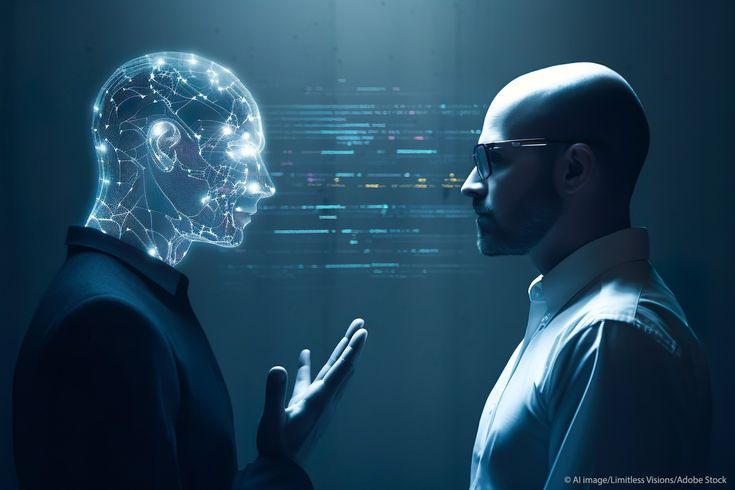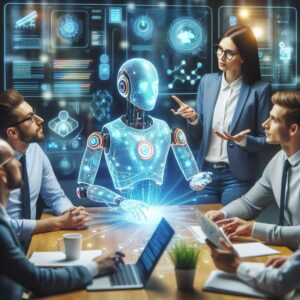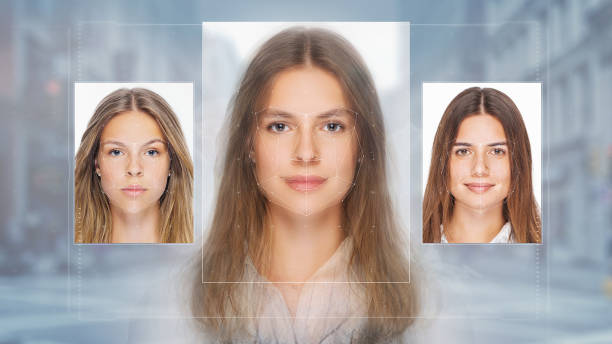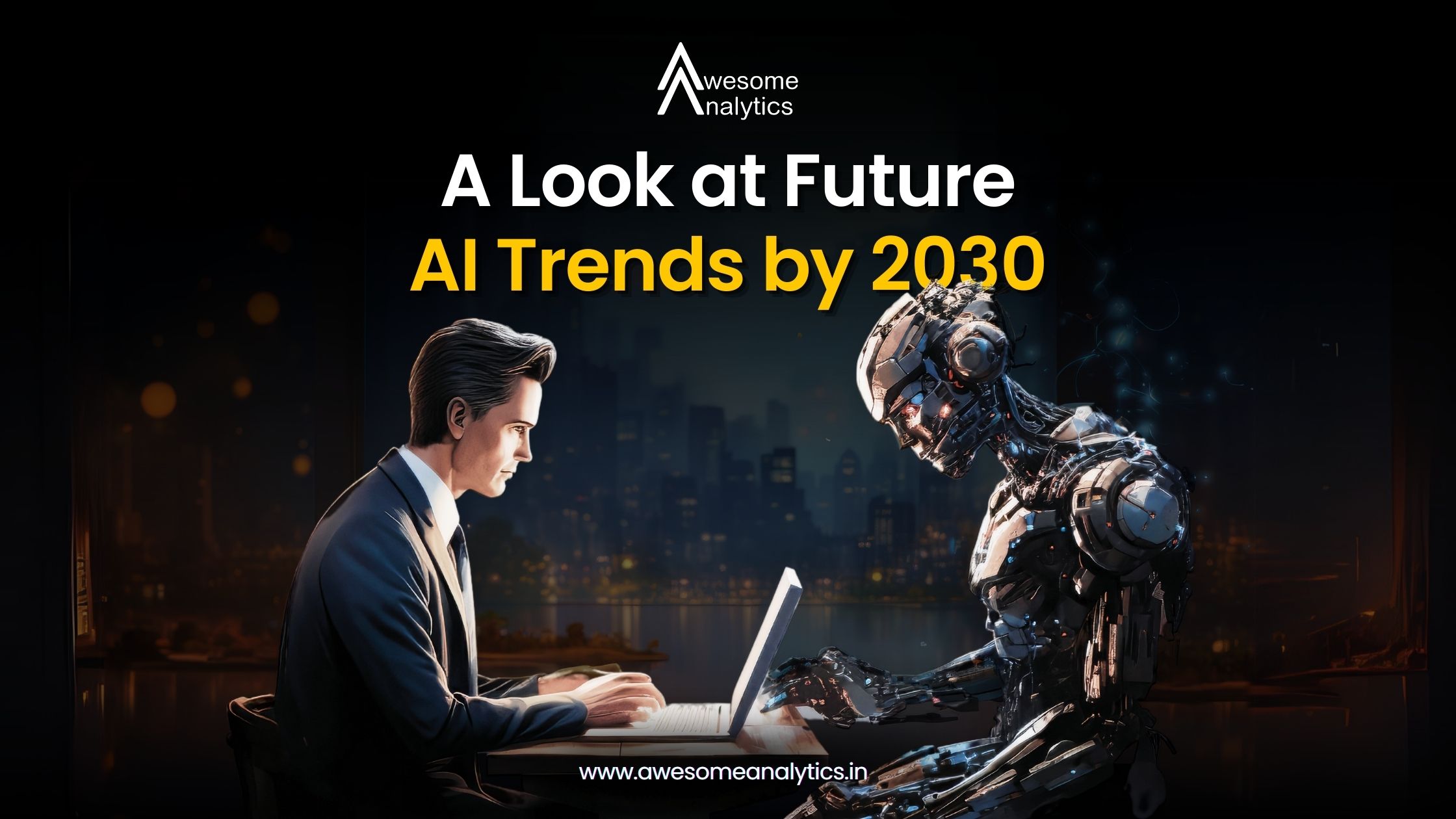AI Evolving Towards Human-Like Intelligence
AI is on the brink of a huge leap, emulating human thinking and learning processes. This advancement is a precursor of a new era where AI systems can tackle problems connected with human consciousness. The implications are profound, promising significant enhancements across various sectors such as business and healthcare.
- Human-like Problem-Solving: AI systems will possess the capability to think critically and devise solutions, mirroring human problem-solving abilities.
- Enhanced Efficiency: Industries will witness improved efficiency and productivity as AI algorithms replicate human thought processes.


Collaborative Synergy Between AI and Humans
- Personalized Assistance: AI will seamlessly integrate into our lives, providing personalized assistance in tasks ranging from professional duties to recreational pursuits.
- Innovative Ideation: The synergy between humans and AI will catalyze innovation, fostering breakthroughs in healthcare, education, entertainment, and beyond.
Universal Intelligence Embedded in Everyday Devices
- Integration into Gadgets: AI will be omnipresent in everyday devices, from smartphones and wearables to household appliances, enriching user experiences through intuitive interaction.
- Enhanced User Experience: Smart devices will exhibit heightened responsiveness, recognizing user preferences and adapting to individual needs, thereby streamlining daily routines.
Advancements in Autonomous Vehicles
The evolution of self-driving cars epitomizes the symbiosis between AI and transportation, promising safer roads and optimized urban mobility.
- Enhanced Safety: AI-driven autonomous vehicles, exemplified by companies like Tesla, hold the potential to revolutionize road safety, exonerating accidents and alleviating traffic congestion.
- Urban Planning Paradigm Shift: Beyond convenience, the proliferation of self-driving cars will catalyze a paradigm shift in urban planning, redefining urban landscapes and transportation logistics.
Revolutionizing Healthcare Through AI
AI's integration into healthcare holds the promise of unparalleled advancements, empowering medical practitioners with enhanced diagnostic precision and treatment efficacy.
- Precision Medicine: By 2030, AI will facilitate personalized healthcare solutions, leveraging vast datasets to tailor treatments according to individual genetic profiles and medical histories.
- Early Disease Detection: AI algorithms will enable early detection of diseases, facilitating proactive intervention and improving patient outcomes while potentially reducing healthcare costs.


Navigating the Implications on Employment
The burgeoning influence of AI on the job market necessitates proactive measures to address potential disruptions while harnessing the collaborative potential between humans and machines.
- Automation Dynamics: The proliferation of AI-driven automation may disrupt traditional job roles, compelling governments and organizations to prioritize reskilling initiatives and embrace lifelong learning.
- Emergence of New Opportunities: Collaboration between humans and AI will engender novel job prospects, particularly in domains such as AI ethics, data security, and human-AI interaction, fostering a symbiotic relationship between technology and employment.
Reducing the Danger of Deep Fakes
The rise of deep fakes poses a formidable challenge, necessitating concerted efforts to safeguard digital integrity through technological innovations and regulatory frameworks.
- Technological Vigilance: Robust technological solutions are imperative to detect and counteract deep fakes, preserving the authenticity of digital content and mitigating misinformation.
- Regulatory Safeguards: Effective regulatory measures are essential to uphold digital integrity, establishing guidelines to combat the proliferation of manipulated media.

Embracing the Future Responsibly
As we navigate the complexities of AI advancement, it is imperative to prioritize ethical considerations and societal welfare, ensuring that AI progress aligns with the collective good.
- Ethical Reflection: We must proactively address the ethical implications of AI, striving to develop technologies that uphold fundamental values and promote inclusivity.
- Holistic Approach: By fostering collaboration between stakeholders and fostering dialogue, we can steer AI innovation towards a future that is equitable, transparent, and beneficial for all.
In conclusion, the trajectory of AI trends towards 2030 promises a transformative journey, characterized by collaboration, innovation, and ethical reflection. By embracing these advancements while conscientiously addressing their societal implications, we can navigate the future landscape of AI with confidence, paving the way for a more inclusive and sustainable digital era.



